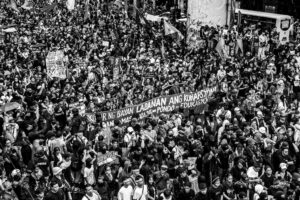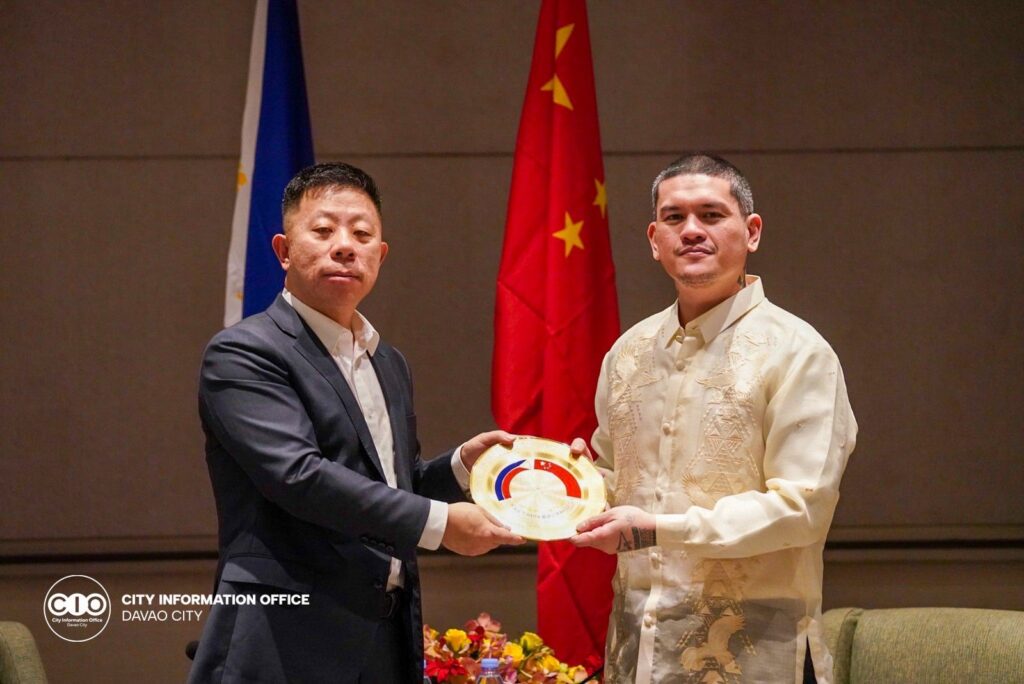By Renato Reyes Jr. | President, Bagong Alyansang Makabayan
Since the news of ghost flood control projects came out in August, the country has been flooded with protests in schools, communities, and public plazas, leading up to the historic September 21 Day of Action Against Corruption. The massive gatherings in Luneta (Baha sa Luneta) and EDSA (Trillion Peso March), as well as the protests in Mendiola, underscored the people’s anger over systemic and unbridled corruption.
The mass actions have taken on a nationwide character, with Bulacan being one of the centers of protest due to massive corruption amid persistent flooding. Even after September 21, local protests, including school walkouts and community marches, have taken place in what can only be described as an upsurge in the protest movement not seen since before the pandemic years. At the forefront of the protests are youth and students but they are joined by many working people who feel the crushing weight of paying taxes while plunder remains unchecked. The demands range from accountability of corrupt officials, and end to corruption-prone projects and budget anomalies all the way to demands for a change in the ruling system.
The political crisis arising from the corruption exposé has led to changes in leadership in the House and Senate, as well as the resignation of a lawmaker and a cabinet official. The corruption scandal has resulted in the creation of an Independent Commission on Infrastructure as well as the appointment of a new Ombudsman who is viewed as a staunch ally of the administration.
So far, we have noted the following critical observations and revelations regarding the corrupt system:
- Corruption happens at different levels of government and at different stages of the the budgeting process, from the National Expenditure Program to the Bicameral Conference Committee report to the implementation of the General Appropriations Act. There is collusion between public officials and private contractors at different stages.
- There is no real bidding for the infrastructure projects. Winners are usually pre-determined because the process is rigged by government officials. Projects are always overpriced to make room for kickbacks and always end up substandard.The kickbacks sometimes take as much as 70% of the total project cost leaving only 30% for actual implementation. In some cases, nothing is left of the project cost and so ghost projects are the result.
- The President prepares the budget, allows a system of pork barrel allocations for lawmakers where they are able to propose infrastructure projects in the budget and receive kickbacks as project proponents. Almost all lawmakers participate in this pork barrel system by proposing or nominating projects and dealing with corrupt contractors who give payoffs and kickbacks also known as SOP. The pork barrel system of patronage has been upheld by Marcos Jr, just like is predecessors.
- The President has allowed the unparalleled abuse of so-called unprogrammed appropriations, a lump sum fund outside the regular budget which contain thousands of flood control and other infrastructure projects of at least P244 billion from 2023-2024. The president himself, as mandated by law, approved the release of funds for these anomalous projects. We thus ask – if every stage of the budget from nomination to release of funds is attended by corruption – isn’t Malacanang also a recipient of such kickbacks every time funds are released?
- The President and Vice President are recipients of campaign donations from private contractors who are doing business with government. These donors saw an exponential increase in awarded contracts after the 2022 elections.
- The phenomenon of contractors becoming lawmakers or “congtractors” has worsened over the past years, as private contractors have become either district representatives of partylist representatives. This is on top of contractors providing hefty campaign donations to lawmakers in a bid to secure infrastructure contracts.
- The corruption in infrastructure projects has spanned decades, persisting through different regimes because the entire ruling system is built on using government to advance private gain. This is what activists have termed as bureaucrat capitalism and its workings are now laid bare at a scale unprecedented in our history.
The hearings conducted in Congress were, for the most part, efforts to expose political rivals while shielding allies, including those in Malacanang. Despite the partisan maneuvers, the testimonies we have heard so far point to a bankrupt system that spans different administrations and cuts across different political factions. The testimonies however, appear sanitized, especially when it comes to the role of the Executive, particularly the President. The House Infracomm has ended its probe after the leadership change. The Blue Ribbon Committee of the Senate has suspended its hearings and its chair has resigned.
The ICI meanwhile has been tainted by controversy as it remained firm in its position of not airing any of its hearings, thus depriving the public of the transparency required for any credible investigation to proceed. The lack of transparency is actually a way to insulate the ICI from public pressure, which in this case is the only real force that can compel accountability in government.
None of these institutions working on their own will exact the accountability demanded by the public. Those in power simply want to ride out the storm and hope the issue of corruption dies down eventually. They are banking on collective amnesia as they position themselves for the upcoming electoral battle in 2028. Never mind the proposal of a snap election which is obviously another attempt at obfuscating the issue.
What makes today’s political crisis different from the 2013 pork barrel scandal is the breadth and depth of the public anger and the fear it has instilled in those in power. Prior to the September 21 protests, there were already murmurs in the halls of power, of politicians fearing the worst when the floodgates of indignation are opened. They fear the scenes in Indonesia and Nepal would be replicated in the Philippines.
Interestingly, we note the position of the US with regards to the crisis in its neocolony as expressed by some retired generals. The political turmoil only benefits the external enemy. Any Philippine coup or any regime change for that matter, will be most concerning for US imperialism. This signals that the US will likely stick it out with Marcos Jr, despite the corruption engulfing his regime, until another pro-US politician can succeed him in 2028.
It is often said that the Supreme Court is the last bastion of democracy, but this rings hollow now after the much criticized decision of the High Court in the impeachment proceedings against the Vice President. As things stand, it is the sovereign Filipino people who is our only real bastion of hope. “Sovereignty resides in the people and all government authority emanates from them” as the Constitution states. Throughout our history, the people have exercised sovereignty in dismantling dictatorships, ousting corrupt regimes and junking anti-people programs. It should be no different when it comes to exacting accountability for corruption. There will be no accountability without outrage in the streets and communities. And it is only the people who can act as a true force for fundamental change and a strong counterforce to reactionary maneuverings and right-wing coups.
It has also become clear that efforts to regulate the people’s wrath, including efforts to temper or divert protests against the highest officials of the land, will simply not work. If the demand for accountability leads all the way to the doorsteps of Malacanang, why will we say “don’t go there because that will benefit Sara Duterte?” That will be selective justice. If groups demand that the two highest officials of the land be held accountable for receiving campaign donations from private contractors engaged in government projects, why will we tell the groups to “just wait for 2028” or “no, that’s not good because we might end up with someone we don’t like”? Trust in the people. Magtiwala sa masa. The people will not allow a Duterte succession nor will they allow another recycled representative of the ruling classes to simply ascend and effect a return to business as usual. The people are demanding more just than just cosmetic changes and they are organizing and building their own strength. It is no longer a question of “who” but a question of “what” will replace the rotten system.
Power to the people. It is the only way. Arouse, organize and mobilize in the hundreds of thousands and demand more than just a changing of the representatives of the elite. Fight to dismantle the political dynasties and the economic base of these dynasties. Fight for a truly free and democratic Philippines where working people, not the big landlords and compradors, are in positions of power and where foreign entities do not decide the outcome of political upheavals.
The ruling system is utterly discredited and we are determined to bring about change that is relentless, thoroughgoing and places the interests of the people at the forefront. ###




